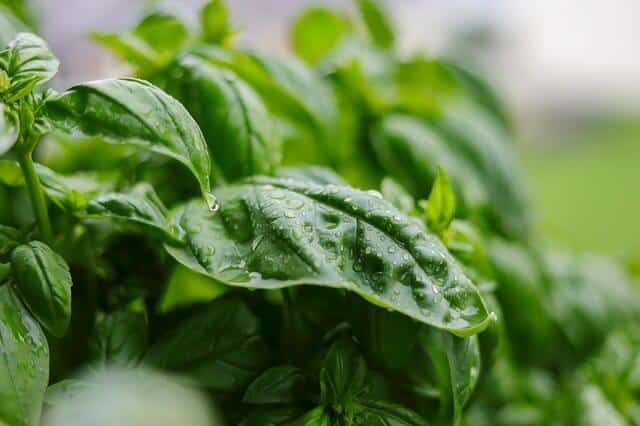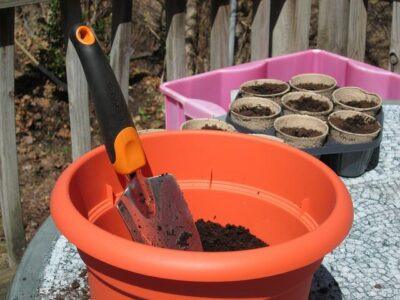There is hope for apartment dwellers and renters who want to guarantee their food security. If you think you must own land to begin, think again. There’s no reason why you can’t start right away.
Growing Food Indoors
Select food crops that thrive indoors. You can grow mushrooms and sprout beans with little to no special equipment. If you have a sunny windowsill or if you purchase indoor plant lighting, you can grow dwarf carrots, radishes, beans, peas, tomatoes, peppers, eggplants or lettuce. Many herbs also will thrive indoors.
Container Gardening
Container gardening is perfect for many renters. A few pots on an apartment balcony can supply you with lots of food. If you have a bigger area, such as a patio or lawn, you can grow even more. Don’t discount shady areas; plenty of food will grow in partial sunlight.
Looking For Non-GMO Herb Seeds? Get Them From A Company You Can Trust! [2]
You don’t need to buy expensive pots, either; salvaged containers will do just fine. If you have more space, you can build large raised beds using scrap wood; this is a good solution for an unused corner of a yard, patio or deck. You
can grow a sustenance garden on a sunny balcony:
- Strawberries: Hanging baskets are perfect for strawberries; look for baskets at least 8 inches deep, or make your own.
- Tomatoes and peppers: Grow these in five-gallon pots or planter boxes in a sunny spot. Make sure they stay warm and get plenty of water, and you should get a nice yield.
- Beans and peas: Build a trellis along a wall, and plant the beans and peas along the bottom in a box. You can train the plants to climb and make good use of vertical space.
- Lettuce, kale and herbs: Grow in a trough or planter at least 12 inches deep. You can reseed these throughout the growing season to maximize the harvest.
- Carrots, radishes and turnips: These will need a deeper pot or box, but will usually flourish to fill whatever space is available.
- Potatoes: Plant seed potatoes in a narrow, deep box, leaving space for each plant. You also can construct a potato box, which will allow for more potatoes in less space. To start immediately, try growing potatoes directly in a sack of soil.
- Apples, cherries, figs and pears: Fruiting trees can be grown in larger containers. You also can train fruit trees to grow in confined areas.
- Squash, cucumbers and melons: If you have a wider space, plant these in 12-inch deep soil. Remember that these plants will spread a bit.
The key to growing food in a small space is to use every available square inch. If your balcony has a railing, consider putting planter boxes on either side of it. Use vertical space with trellises and hanging baskets. Stagger pots, with smaller pots using up spaces between larger pots.
Community Plots and Other Alternatives
If you have no usable space for growing food, look into community gardening. In many urban areas, community gardens (or allotments) are run by dedicated individuals trying to produce food for their families and make food security more accessible. Rules will vary, but in most cases, you will work the garden or your portion of it in exchange for square footage. Resources and knowledge are often shared, and this can be a great way for an urban farmer to get started.
If you cannot grow your own food, look into community supported agriculture and farmers’ markets. At the very least, supporting local growers means you’ll have access to their resources. If you develop strong relationships with local producers, you may even find yourself in a bargaining position should food security become an issue. You can have some security in knowing that you are supporting food production in your region.
Don’t let urban dwelling or renting stop you from ensuring your food security, and don’t leave it in unknown hands. Everyone can take immediate action to begin growing some or all of the food necessary for survival; you might just need to get creative.
What ideas would you add to our list? Share your thoughts in the section below:

